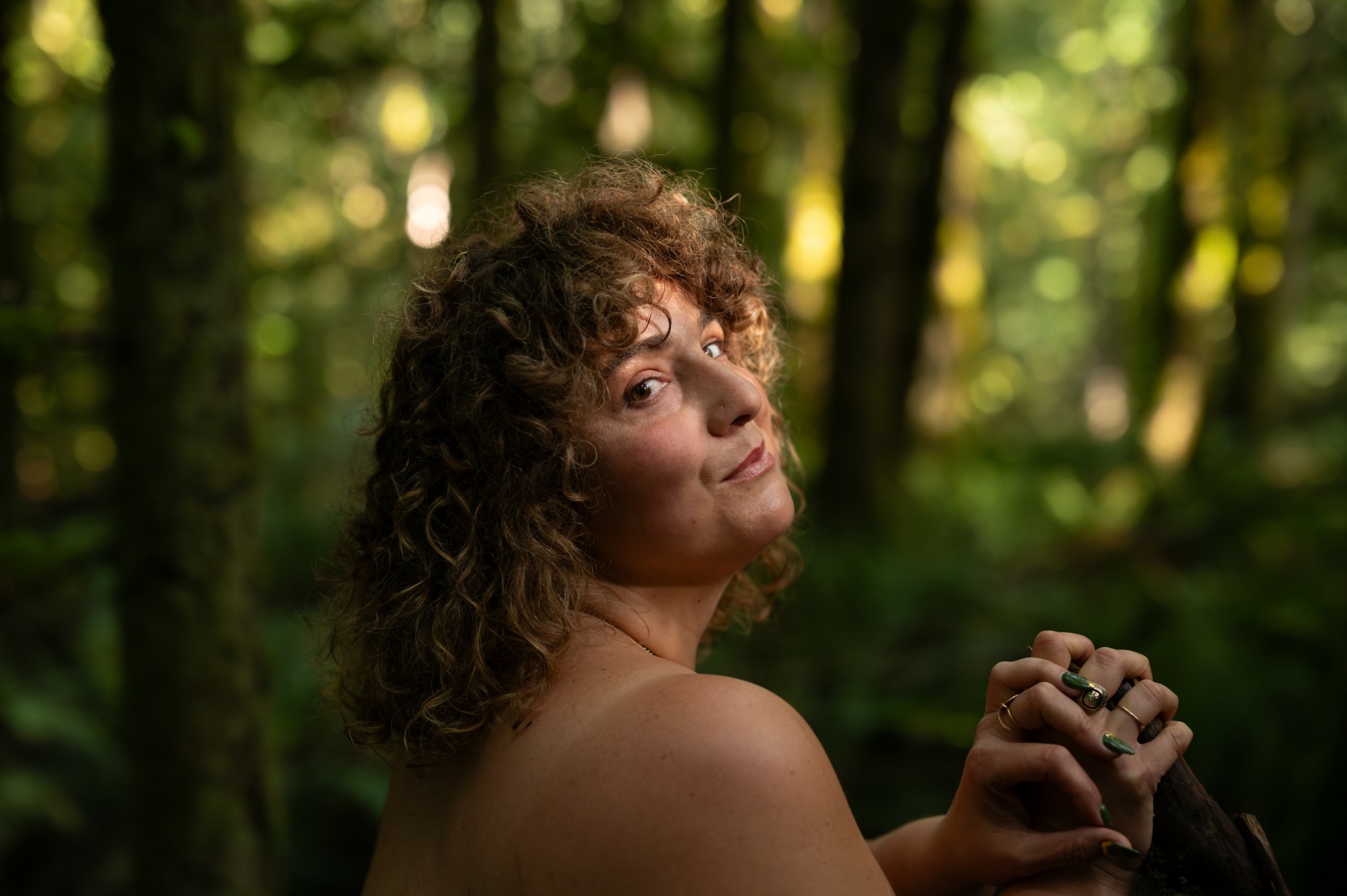We’re excited to introduce you to the always interesting and insightful Natasha Cecere. We hope you’ll enjoy our conversation with Natasha below.
Natasha, appreciate you joining us today. Let’s kick things off with your mission – what is it and what’s the story behind why it’s your mission?
When I tell people what I do for work, I often get asked, “How did you get into coaching? What made you want to do it?” and the story I often tell is this: I was on an airplane in 2019, waiting in the middle of the plane for the bathroom to become available. While I was waiting I struck up a conversation with a flight attendant. A few moments had passed and I found us locked into a deep conversation, where she shared intimate details of her life, her struggles, that she’d undergone a surgery a few years ago and since had struggled with her self-esteem, her body image. She wept as she talked about how much pain she’d experienced, and I did what I often did when that happened- I listened. I didn’t try to make it better for her, or rush her through her explanation. I made it ok for her to keep talking and supported her that way. The conversation ended with her experiencing some relief from having shared and the flight continued as usual.
That conversation impacted me more than she will ever know- partly because I related to her; I understood her struggle with body dysmorphia and feeling isolated (and there is real beauty in knowing you’re not alone in your experience). But more than that, it made me realize that I had been in that position so many times before- finding myself in an intimate conversation with a stranger where they were unburdening themselves and finding relief.
I often say that The Universe will whisper first, and if the whisper doesn’t work, it will shout. This was Life shouting at me that I had a gift and a skill that could be useful to people. I could help beyond a passing conversation. Those skills had been there with me in every other job I had had, but now they were being spotlighted as something uniquely powerful, something that could be honed and used to help on a bigger scale.
A few months later I hired my coach Sascha Alexander, and under her tutelage started working as a coach in my own business. I wanted to be able to work with individuals on a deeper level, so that the conversation didn’t need to stop at one moment of being supported, but rather so people could have a more comprehensive path to growth, one where they would be able to see their own progress, and have a mirror to reflect it back to them in moments of uncertainty.
My mission is simple but transformative- listen deeply to people, give them the space to be heard, and you have the opportunity to support them in changing their lives. There is magic in allowing yourself to be seen by someone, to be willing to explore the depths of who you are with a witness, that never ceases to amaze me. It’s what makes coaching so special. I sit front row in watching people locate their own challenges and shortcomings, sift through what’s no longer working for them, and my job as a coach is to embolden them to investigate what else might be possible.
When we open up to more possibility, we have new hope, and with enough time, a new way of seeing the world. And when our beliefs change, the way we approach the world and everything it entails (relationships, jobs, dreams, our own sense of worthiness) changes dramatically too. We take new actions, make new choices and ultimately move into a new way of being.
I have helped clients create their dream businesses, leave toxic relationships personally and professionally, worked with parents about to become empty nesters who wanted to reclaim their own lives. When people ask, “Who do you work with?” my answer is simple: anyone who is driven to create something new in their lives who wants support in going for it.
I will never stop seeing that as the magic of humanity, and so much of my work is dedicated to helping people see that same magic in themselves.
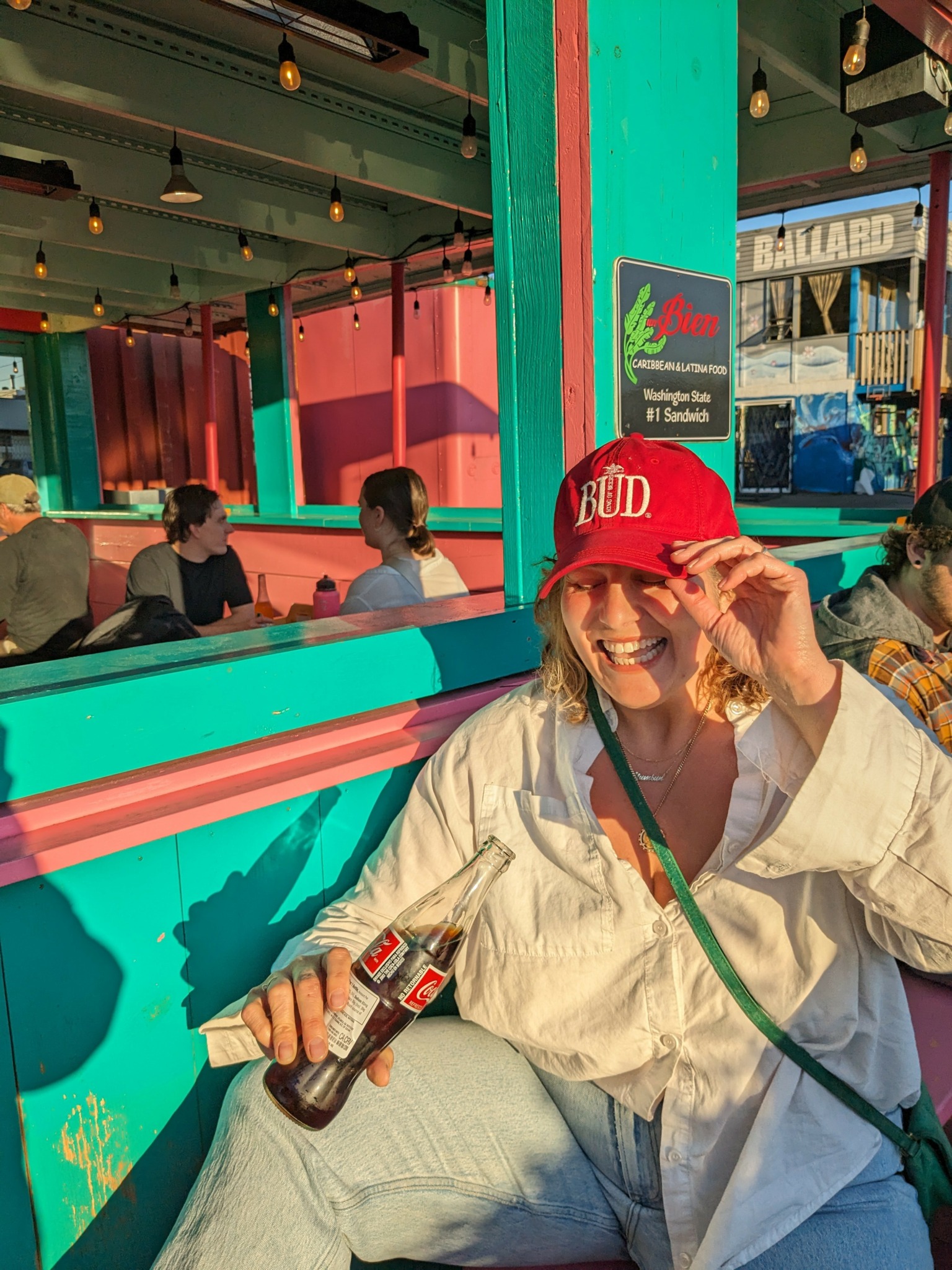
Natasha, before we move on to more of these sorts of questions, can you take some time to bring our readers up to speed on you and what you do?
I believe a characteristic that most coaches have that uniquely qualifies them, beyond an ability to listen and care, is their curiosity. I have been curious about how people work since I could talk and it’s been an invaluable thing to bring to my business.
Coaches are champions for continued growth and learning, and we know that the learning never stops.
Because of that, I, like many coaches, am hungry to find new modalities, lines of questioning and models that will help me reach my clients.
Some of my favorite models to utilize are Byron Katie’s “The Work”, somatic practices borrowed from Somatic Experiencing by Peter Levine and The Trauma Resiliency Model developed by Elaine Miller-Karas, and the concept of “parts work” from Internal Family Systems. I use all of these often in my practice.
That being said, I have also been known to quote Real Housewives and Kris Jenner. If it’s useful, I am going to bring it to my client.
Part of coaching is homing in on the individuals’ world and their belief systems, and so much of that is rooted in how we were raised and what we experienced as a child and young adult. When I sit with someone I try to remove myself entirely from the picture and immerse myself in who is sitting in front of me- their world view, values and ideas may be completely different from mine and my job is to learn THEIR world, not project my own into it. Once I have a better understanding of that, I am able to pick and choose which tools will best support them.
One of the more surprising places I have been able to draw resources from has been my theatre background. I was (and am still) a devout theatre kid and spent my youth playing theatre games, performing and doing improv. One of the cornerstones of that is play, creativity and being able to “imagine” yourself as a different person.
You would be surprised at how useful this skill has been in my coaching business.
I once had a client who was a high-performing, high-achieving woman in her field, but who had had to leave her previous job because of intensely abusive conditions in the corporate setting. She came to me discouraged, worried about her future viability in a new job, and generally doubting her abilities to perform at work, despite being such a high performer objectively. She struggled to trust herself and believed there were too many other people “way more qualified than her” to get the kind of job she was after.
To coaches, discovering these beliefs is exciting! It means we have located a misunderstanding in the persons’ psyche that’s preventing them from moving forward in the direction they want. We don’t shy away from these parts, we want to lean in and get curious. Truly, there are no bad parts of ourselves, just parts that need more compassion and attention. She needed to be able to see this part of herself more objectively, to see how it was informing her actions.
So I gave her an assignment: create two characters.
The first character was to be her most confident self, the part of her that has no doubt she is worthy. Sometimes we call this “The Higher Self”, or the part of us that is unmarred by our life experience. Deep down, I believe we all have this as part of our make up, that we are born as loving, whole creatures, that we are worthy by virtue of being born.
I encouraged her to find a character for this part, to give her a name, and to think about how she perceives the world through this lens. How does THIS part relate to the world and the potential of a new job? What does she believe she deserves? How would she speak, move, dress?
The second to identify was the part that was SURE she didn’t belong, that she wasn’t worthy, and that she couldn’t get a job, that other people were more uniquely qualified, better. I asked her to flesh out this character the same way she did the first. Once she had those details, I asked her to make a video of each character at a job interview. My only prompt to her was “So tell me about yourself”.
The videos that came back were stunning- one, a meek soft spoken woman, quick to point out her flaws. She was apologetic, her hair was messy and she was noticeably nervous. It was clear she was uncomfortable with being seen.
The other character was bright, enthusiastic, quick to talk about her gifts and confident in her abilities. She wasn’t afraid of being under qualified.
The contrast was stunning and it gave us a point of orientation. I asked my client after she turned them in to journal on what the value of each of these characters was. What were they each doing FOR her?
In writing she discovered BOTH personalities offered her something. The unqualified part wasn’t wrong or bad, or trying to sabotage her. She acknowledged qualities in her that were valuable- she was aware of other people around her, she people-pleased partially out of her empathy for others, she was a good listener.
My client was able to develop some compassion for this part of herself, to see that in fact all it was doing was trying to keep her safe. She saw value in the other confident character as well. Seeing both of these as parts of her gave her an opportunity to get some distance from the pattern she’d been playing out in her work life- she was both empathetic AND ambitious, a good listener AND very qualified.
She didn’t need to vilify herself, only become aware of which personality she was aligning with most when she was in the job application process, and steer accordingly. This exercise helped her have more compassion and less judgment when those critical inner voices came out, and she as able to soften around them and take action even when they were present.
The next few months we focused on her attitude approaching new opportunities and very quickly she was presented with several options for new work that challenged and excited her. She was able to receive the praise given by potential employers and didn’t beat herself up as much for her missteps. Ultimately she found a job that support hers goals and values.
Coaching is not only about getting the outside goal you’re gunning for. My clients DO often hit their goals for new jobs, new relationships, and creating the businesses they want. However the larger wins happen internally, when they are able to shift patterns and old thinking, and move into BEING in the world the way they’ve always wanted. They have more compassion for themselves, are quicker to forgive themselves and start to see mistakes and “failures” as part of the process (or even better, a sign that they are on the right track).
I am often meeting new clients at the point that they are struggling to change the outside conditions FIRST, and my job is to invite them to bring that same curiosity to their internal conditions- what are their values and beliefs? How are those creating their external reality and what would have to change in order for them to feel differently inside about themselves? What would they have to let go of to get where they want to go?
Make no mistake, this kind of work requires willingness, curiosity, and daring. It’s courageous to be willing to look at yourself, to take responsibility for your experience and decide what you want to do next. And it’s my honor to walk with those clients who make the decision that they don’t want to wait any longer to create the life they’ve always wanted.
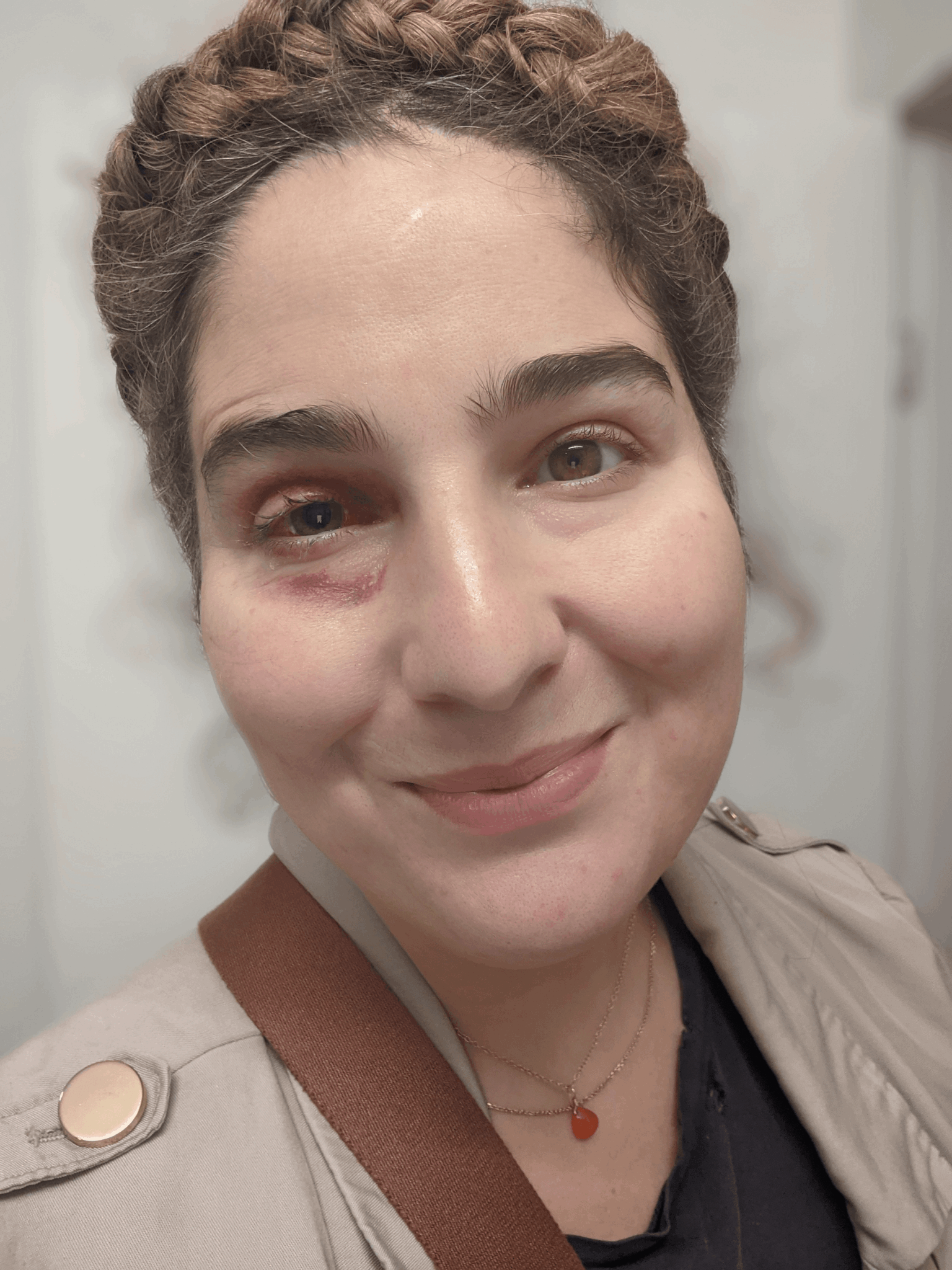
Can you share a story from your journey that illustrates your resilience?
In 2021, after having just made a major move to my new home of Seattle, I experienced two back to back sudden illnesses. The first illness was a rare virus that attacked my eye and threatened my vision. I had been lucky enough to receive the right treatment when the virus attacked my eye, but almost a year to the day later, doctors told me they’d found at tumor the size of a grapefruit growing out of my hip that would need to be removed.
In both circumstances, I had been told by doctors the prognosis wasn’t good- that I would likely lose my vision, and then with the cancer, that the surgery required to fix it was lengthy, risky and there could be complications. At worst, I risked dying, and at best, I would likely never walk straight again.
I had a unique opportunity to really put my work to the test. How was I going to meet the challenges, fear, uncertainty and doubt that these sudden illnesses caused? How do you move forward with a good attitude if your life is at risk?
I knew that the way I looked at these situations would determine my experience of them, that I was responsible not for how my body would respond, but for how I approached the situation.
I certainly had my meltdowns- many moments of tears, crying to friends, family and God about how unfair and scary this was AND I made a crucial decision that changed the trajectory of my illness. I decided I was going to use every tool in my toolkit to live.
In my first illness with my eye, I was introduced to the work of Dr. Joe Dispenza, who, after getting in a life threatening accident, had dedicated his focus to imaging his body healing on a cellular level. He spent hours in his hospital room doing this and I adopted a similar tool to his.
I wrote out what we call “An Ideal Scene” in coaching. In as much detail as I could, I wrote about my life after healing from cancer and surgery, always starting each sentence with “I am” as if it was already happening to me:
I am walking pain free.
I am watching my scars fade quickly.
I am stretching in the morning and feeling how strong my body is.
I am reveling in how much support I have in my doctors, nurses and PT’s. I am feeling loved and supported by all of them.
I am gleefully riding my bike at the Olympic Sculpture Park with friends.
I am coming out of the water after my first swim in Puget Sound since surgery and I did amazing.
I am feeling the support of all my loved ones, living and dead, who helped guide me through this process.
I read that scene over and over again, each time capturing a more vivid image of what I felt would inevitably happen (and all of it did become a reality later).
I knew I couldn’t do this journey alone so I rallied my team. There were my doctors, who I “lightly coached” around how to talk to me about my prognosis. When they wanted to describe what could go wrong, I would request they walk me through the BEST case scenarios they’d ever seen in great detail. I thanked them out loud and internally, and sent gratitude to each nurse and staff member who supported me. I would list the things I was grateful for, noticing the air in my lungs, and my ability to see around my room, my ability to laugh and find humor in the darkest moments.
I had always had a hard time asking for help, and illness eradicated that for me. I called on friends to be there for when I went into surgery, friends to act as point people for when I was well enough to have visitors so I didn’t have to make the arrangements myself, I had a friend in charge of a long email thread to keep people abreast of my progress during my surgery. Friends and family came to stay with me after I was sent home to be with me. Illness allowed me to receive in a radical way.
I even coached some clients virtually from the hospital, and it reminded me that there are gifts in being of service to others, especially when you yourself are struggling.
When your life is on the line, your attitude matters. Not just for survival, but for how you experience each day. Every moment becomes a choice between hope and fear.
This is true even when you aren’t sick, but illness put a spotlight on my the thoughts I was having about my life in a way nothing else had. I saw my physical resilience, of course, when months after my surgery and multiple readmissions, I walked out for the last time, in a walker but cancer free.
The bigger shift, though, was my internal life. I believed deeply I could make very uncomfortable asks and people would show up, that I was deserving of care, that my body, which had often been something I was at odds with, was truly the most magical vessel I could have asked for. I felt real love and protectiveness towards it. I started talking to it with more love than I ever had in my life. I became willing to have needs and say them out loud. I am a fierce advocate for myself as a patient and a person because I know that my care is my responsibility first, and I have to trust myself above anyone else. I know in my depths I can do hard things.
I often say illness was the biggest gift I ever received because it forced my to radically change for the better. It helped me see my own inner authority. I was not a victim. I was victorious.
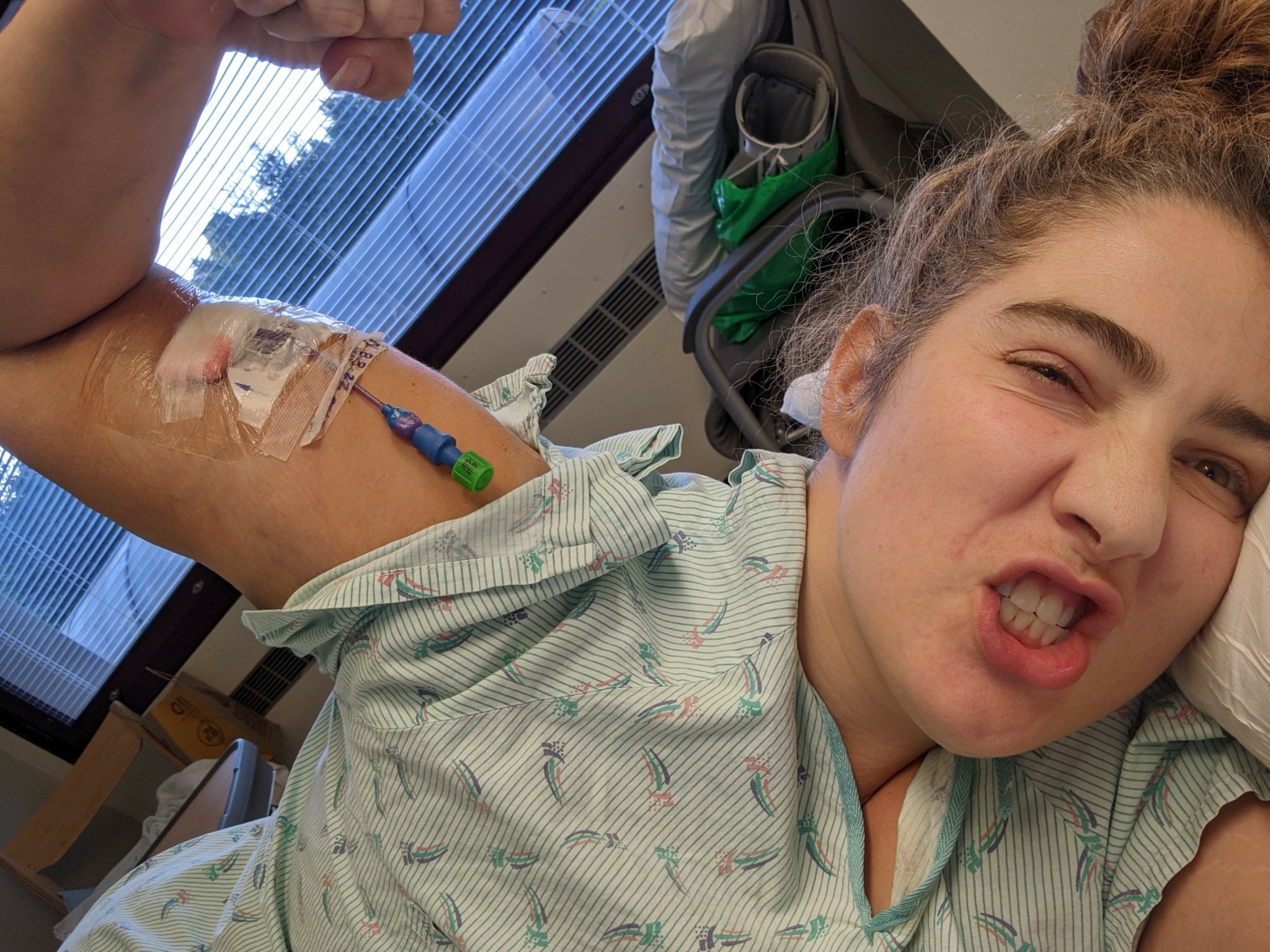
We often hear about learning lessons – but just as important is unlearning lessons. Have you ever had to unlearn a lesson?
I had to unlearn the idea that boundaries are mean, or uncaring, to become a good coach.
Like so many oldest daughters, I grew up being praised and rewarded for how kind I was as a kid. I was kind, caring, very aware of people around me, and it got me a lot of love and affirmation to be caring about OTHERS. Like so many women, we are conditioned at a very young age to give of ourselves freely so people will like us, and approve. That kind of acceptance is true currency, especially when you are younger.
As a child that meant that I conflated giving and saying yes with being kind.
But of course, that’s not true, and as an adult, that became a painful dynamic in relationships.
It meant I often said “yes” when I really wanted to say “no”.
It meant I gave more time than I had, or abandoned things that were important to my own life for the sake of other peoples’ needs or timelines.
I felt “mean” if I had to say no. I felt I wasn’t being a good friend, girlfriend, co-worker.
I held quiet resentments against other people who were willing to say no or have boundaries.
Subconsciously, I believed boundaries were things only rude, selfish people had.
I remember early on in my coaching business, I was having a coaching conversation with a new potential client. She was on Zoom on her phone and we were a few minutes into the call when she set up her phone like a mirror and started doing her makeup. She was rushing from this to the next thing and insisted this was the only time she could do it.
I sat quietly aghast while I watched her, unable to say anything out of fear of her thinking I was being mean. I didn’t want to rock the boat and I didn’t have enough experience or confidence at the time so I said what I was usually said, which was “No problem” and stumbled through coaching her while she was distracted by putting on eyeliner.
I took it to my coach Sascha and told her about it, told her how upsetting and distracting it was.
“Woah woah woah”, she laughed. ” Yeah we don’t coach when people are doing things like that. You need to tell someone the next time that that’s now how you work, that this requires focus and privacy, and that you ask that people not be doing anything else to distract.”
Oof. I remember how it landed, how it sounded so mean to say something like that. She would be offended, upset. Maybe she wouldn’t want to work with me ever again.
Another well known coach in my community asks her coaches, “Are you willing to offend in the name of service?”
And I really heard that. In order to be a good impactful coach, I needed to rewrite my understanding of what “nice” and “kind” actually was, if I was going to help people the way I wanted.
That went beyond just saying “yes” all the time, and making people happy. It also meant having limits, and voicing concerns that might be hard to hear. It meant putting myself and my business first in the face of fun social engagements sometimes. And it definitely meant no more makeup tutorials while coaching.
In reality, I saw that having boundaries is a mark of respect, self-esteem and care for yourself and others.
It was a slow unlearning for me, at first I spoke up about small things and moved through the discomfort of feeling someone’s disappointment, or upset at me saying no. After some practice, though, I started to realize that these boundaries almost never landed as harshly as I thought they would, and that I saw improvements in conditions after speaking up.
Now when I set a boundary with a client or a friend, I am able to do it in a neutral loving way. Because ultimately I am setting that boundary for the relationship to continue and thrive, not to put an end to it. It’s not mean girl behavior, it turns out it’s one of the most loving things you can do.
Contact Info:
- Instagram: funnygal83
- Other: For inquiries or to hear more, email me at [email protected]
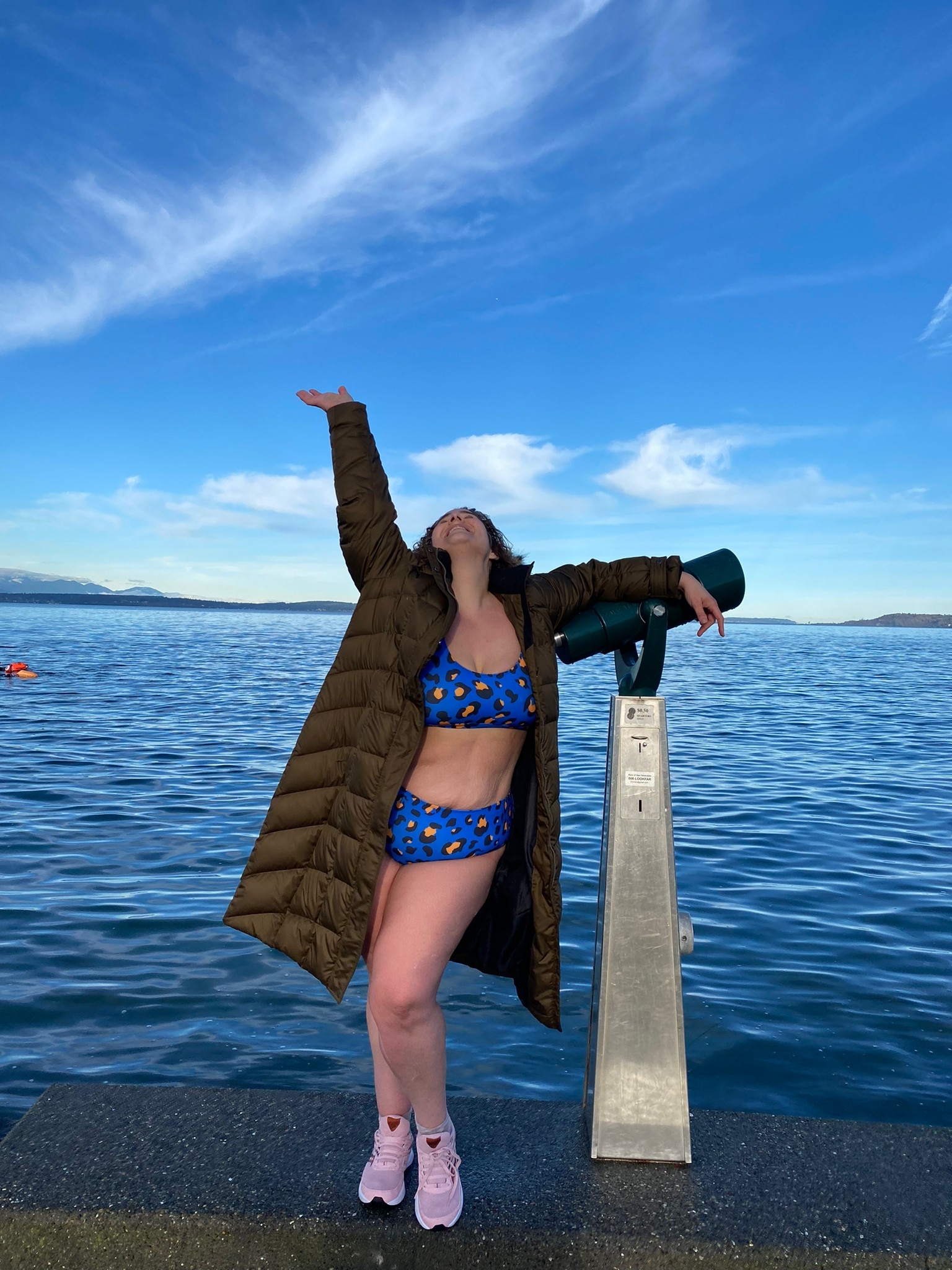
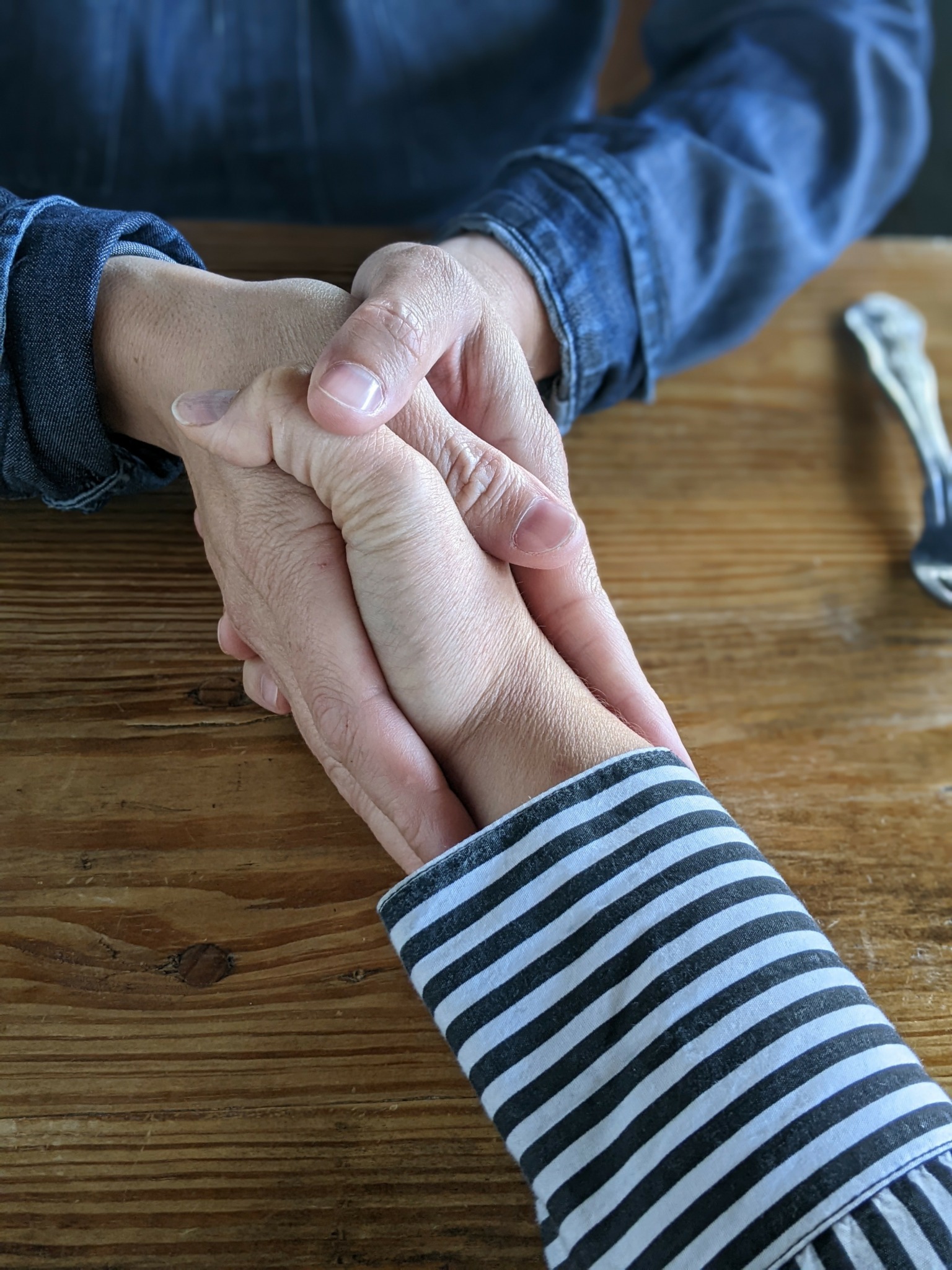
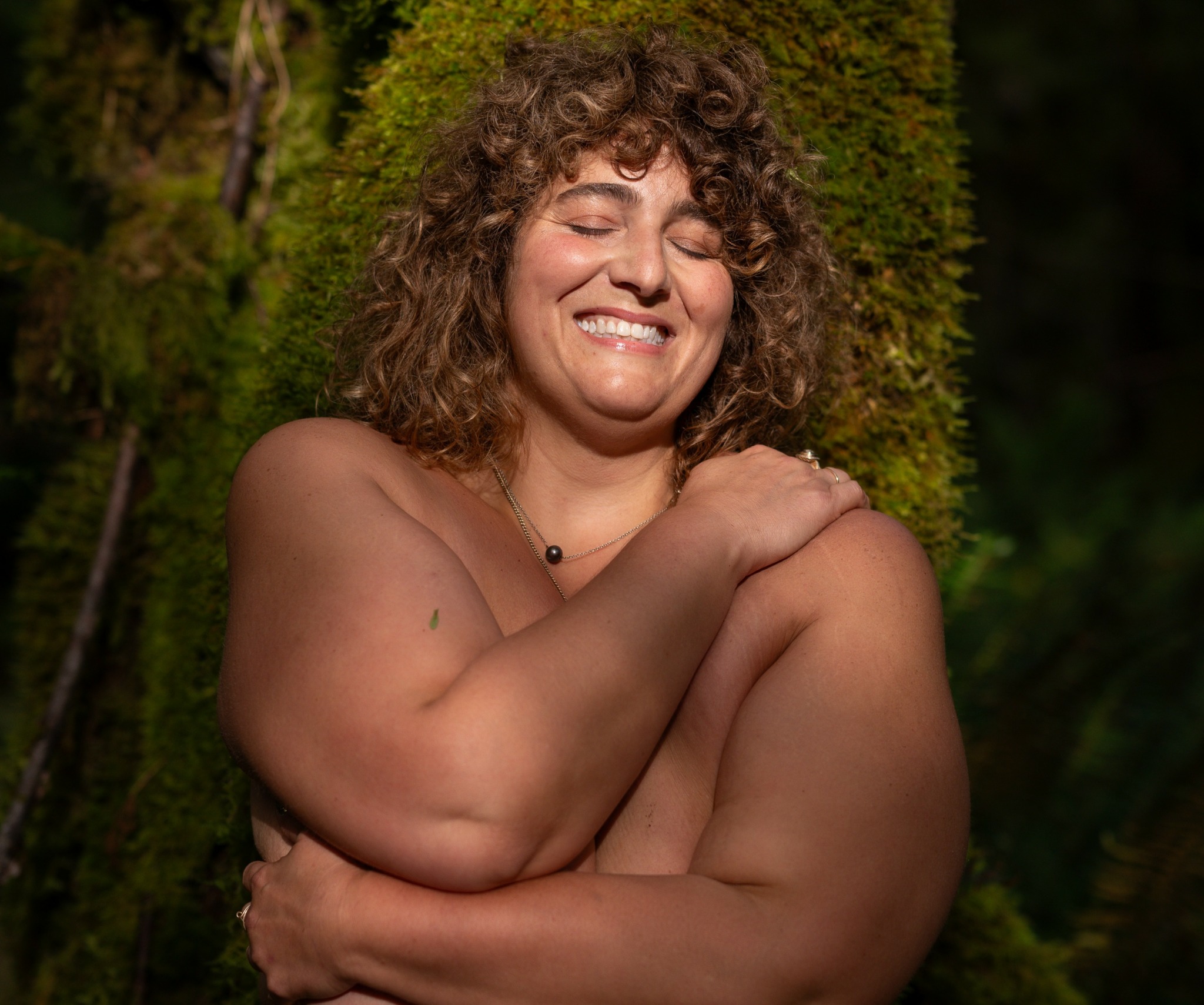
Image Credits
Kiara Winter Photography


